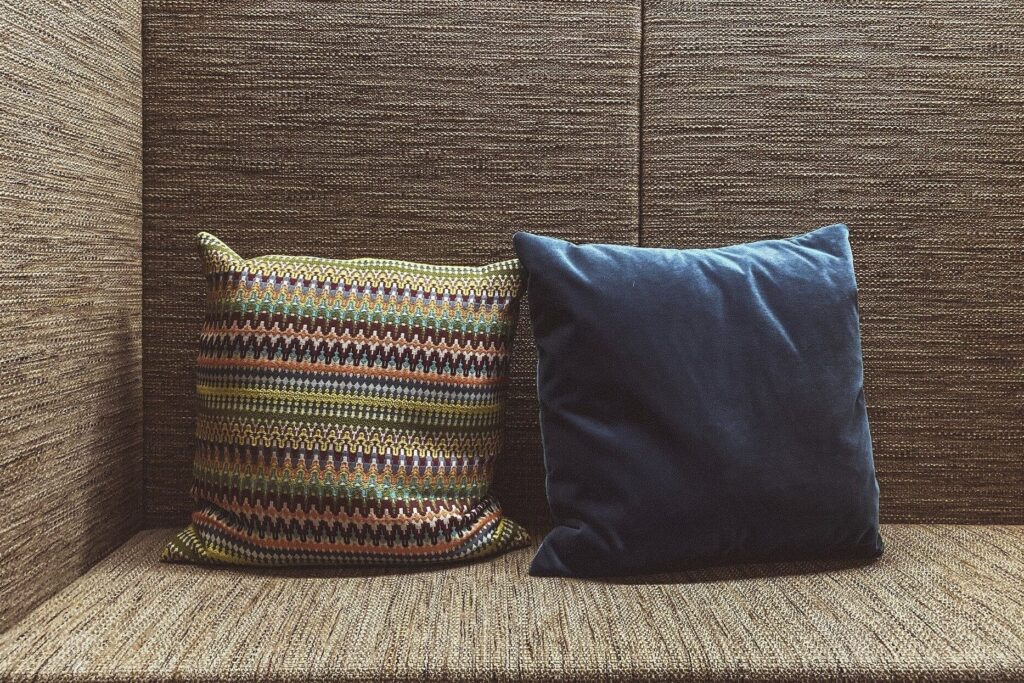On August 8, 2020, there were several reports of Brazilian health regulation agency Anvisa banning every possible kind of pillow on board planes coming to and leaving the country. Ridiculously sounding news attracted some attention and many readers scratched their heads wondering what could have prompted such a decision. But did the decision itself really happen?
The story first appeared on Live and let’s fly, Matthew Klint’s popular and quite reputable blog. The original entry cites a memo shared by an unnamed flight attendant at United, stating that “effective August 6th, pillows are no longer provisioned on flights to/from Brazil.” The ban allegedly applied to both passenger and cargo flights, including even flight attendants’ personal pillows.
According to the article, United would provide business class passengers with two duvets to be rolled up into a makeshift pillow and crews would be provided with additional linen and blankets for the same purpose. Easiness of substituting a pillow with any other object, just as capable of becoming a transmitter for COVID-19, therefore makes a purported ban seem completely pointless.
To be fair, Andrew comments that he could not find any mention of pillows on Anvisa’s website and the ban was not mentioned anywhere else on the internet. That is, before the news of the memo went viral and every aviation geek and his co-pilot copied the story, furnishing it with all manners of additional juicy details.
The fact that there is no primary source for this ban – save for anonymous United flight attendant’s interpretation of it – may raise some red flags. So, before reporting the story, AeroTime decided to contact Anvisa and ask for their comment.
The answer was as expected:
“According to art. 34 of RDC nº 02/2003 and Technical Note 101 that update sanitary measures in aircrafts and airports during Covid-19 pandemic, pillows, blankets and earphones should be single-wrapped and cleaned after every flight. Additionally, pillows should be made of impermeable material. If the pillow covers are made of permeable material, it is mandatory to clean and sanitize the pillows and pillow covers, but for many companies it is not a practicable procedure. Therefore, it is offered to the airline company the option not to provide pillows during flights.”
So, Anvisa’s website does not contain any information on Brazil’s ban on pillows because there was no ban. There was a requirement to sanitize both pillows and permeable pillow covers, and United, presumably, decided not to do that, getting rid of the soft amenity instead. Interestingly, all pillow substitutes will still have to be sanitized the same way, although doing that may have been deemed easier.
Takeaways and conjectures
There are a couple of lessons to be learned from this story, though. The first of them is simple. Judging from comments under numerous articles and social media posts about the ban, Brazilians were amongst the first ones to believe the story and spread it. Country’s government is not the most efficient at dealing with the virus to say the least, and mixed messages and falsehoods disseminated by Brazilian populist president Jair Bolsonaro pushed the country into a state of high distrust of the governmental institutions. No news story is too absurd to come from the Brazilian government, no matter how laughable. It is a shame that the same sentiment extends to the country’s health services that are known to clash with Bolsonaro over his simplistic views of the pandemic.
Another lesion is a bit more complicated. If the memo is real, and it really spins United’s decision to not comply with Brazilian health requirements as an absurd ban of pillows, a grim prospect emerges. All over the world airlines are clashing with governments over safety standards and this story may give them a blueprint to win those fights simply by spreading factually incorrect information. A lot more caution will have to be exercised when dealing with similar news in the future, coming from insider memos or otherwise. If not, there is a real risk of putting passengers’ health at stake simply by retweeting a fake story conjured up by some unethical airline striving to save several dollars on sanitizing.

